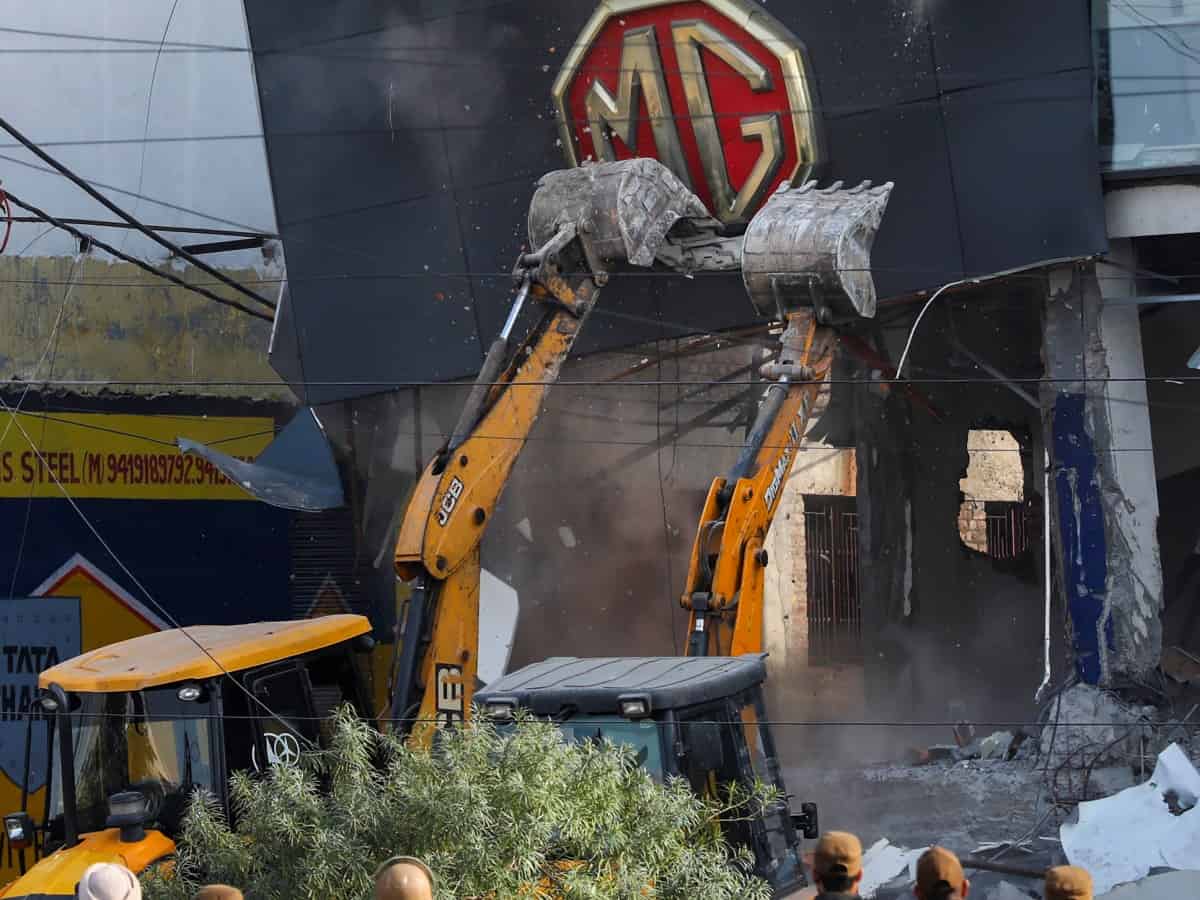
The anti-encroachment drive in Jammu and Kashmir, which had rattled the whole of the Union Territory, adding yet another layer of uncertainty and anxiety among the people, has been apparently halted as the bulldozers have retreated to their resting places. There is no official word that the drive has been abandoned mid-way, halted, or as to when it would resume. The disappearance of the bulldozers and posse of policemen and revenue staff has come as a temporary relief to tens of thousands of people, who were living in fear of losing their homes and business outlets as they were told that they were occupying the state land.
The anti-encroachment drive, it is being assumed, has been given up in the wake of strong stand taken by the political parties, which responded to the anxieties of the masses. The fact of the matter is that this drive had brought a bad name to the administration. The drive, it was stated, had been launched with the noble intentions to use the retrieved state land from the illegal occupants, most of them former powerful and influential people, for public utility services like construction of hospitals, schools, panchayaghars and bus stands, but the way it was undertaken it raised questions about its stated purposes.
It was a déjà vu moment for the political parties. They had opted for silence as all the groups had baggage on this count, as the main charges of land grabbing were against the leaders and top activists of the parties that ruled the erstwhile state for decades. They cocooned themselves, making all-out efforts to save them and their properties from the crashing sound that bulldozers made while hitting the buildings.
It also a déjà vu moment for Jammu and Kashmir Apni Party, the newest political group that had come into being on March 2020, at the time when the people had preferred silence over their expressions in the wake of the abrogation of article 370. The political leadership was silent, as many of them were in house arrest, and others were too scared of talking about the problems of the people. Syed Mohammad Altaf Bukhari, who founded Apni Party in March 2020, had shattered the glass of silence. He came out and spoke of the grievances of the people, took the matter to Prime Minister Narendra Modi and Home Minister Amit Shah, making them aware that the simmering in Kashmir could erupt if their genuine aspirations about the restoration of the statehood and the elections were not met. Neither of the two objectives have been fulfilled so far, but he did make an effort to keep these two critically important issues alive in the narration, which was later picked up by others.
This time, too, when the din of anxiety filled the air after the anti-encroachment drive came in the shape of the bulldozers. Altaf Bukhari thought it was a moment of beckoning for him. He, along with leaders of his party, took up the matter with Home Minister and Lieutenant Governor Manoj Sinha, not only he acquainted them of the lack of understanding of the consequences that this drive could entail, but also laid out a map of the strategic failures that the government would be traversing. He combined this approach by the silent protests by his party activists across the UT, putting extra pressure on the government to realize that the party would not allow the bulldozers to roll over the structures.
Other parties in the UT followed this path, and when it became clear that the anti-encroachment drive, with bulldozers razing buildings to the ground, threatened to bring back the street protests, general strike culture back in Kashmir as an expression of anger of the masses, the government realized that the things could go out of hands. The strategic advantages that it had claimed to have achieved were getting lost in the dust and din caused by actions of bulldozers, it halted the drive.
It, however, hesitated from making a public announcement. There were reasons – that would tantamount to admitting failures in launching and executing the anti-encroachment drive. Now it is keeping silent on the issue, but the bulldozers have been told to go back. In Jammu and Kashmir, the anti-encroachment drive was not just getting the land vacated or creating a narrative of the rich versus poor, it had national and international dimensions. This drive had threatened to derail all the strategic spaces that it had claimed to have gained.
